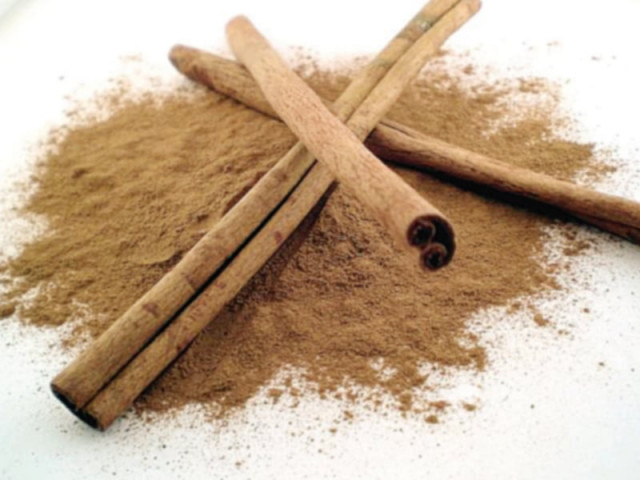Daadi’s diary: Keeping mosquitoes away
It is best to guard against mosquito bites completely.

Daadi’s diary: Keeping mosquitoes away
Mother Nature provides us with all the natural repellents you need to protect your loved ones. Different repellents work with varying effectiveness for different people due to individual body chemistry, so experiment a bit to find out what’s best for you.
First the basics: Wear loose, light-coloured clothing (To a mosquito, bright floral prints will make you look like a flower), and avoid heavy floral or fruity fragrances. Mosquitoes find their prey through carbon dioxide emissions, so avoid exercising at dawn and dusk when mosquitoes are most active. Shower frequently during the humid season to get rid of sweat, which is highly attractive to mosquitoes. Eliminate standing water sources — bird baths, puddles, flower pots are a few of the obvious ones. Less obvious is your toilet bowl-keep the lid down!
Now let’s take a look at what Mother Nature has in her anti-mosquito arsenal!
There are several plants with mosquito repelling properties. They may be used as follows:
• Plant them around your home and garden to repel mosquitoes.
• Crush a few leaves to release oils and scatter around you, or rub on your clothes and skin to keep mosquitoes away.
• Plant extracts and oils can be added to lotions, and diluted with distilled water or carrier oils (olive oil, sunflower oil, almond oil, baby oil) for application to the skin. Add a few drops of essential oil to ½ cup of carrier oil — just until you have a clear scent. Test the repellent on a small area first to ensure that you don’t have an allergic reaction to any of the ingredients
Lemongrass (Agan Ghaas): Soak one cup of chopped lemongrass in two cups of water for a few hours, and store in a spray bottle. Spritz yourself and your surroundings every couple of hours.
Mint (Podina): Boil one tsp lemon juice and/or one orange peel, and one tsp chopped mint leaves in one cup of water. Leave overnight. Strain, add two tbsp carrier oil and store in a spray bottle. Spritz yourself and your surroundings every couple of hours, you’ll love the fresh citrusy smell.
Cloves (Laung): Hang crushed cloves in decorative bags around the house. They’ll look pretty, smell nice and keep the mosquitoes away.
Neem: Fill a small non-flammable container with Neem oil, and light up a wick (thick cotton thread immersed in the oil) for about 30 minutes in a closed room. The mosquitoes fly away when the room is ventilated, otherwise they eventually drop dead. Before going out, rub Neem oil on exposed body parts. Neem oil is most effective against malaria causing mosquitoes, especially when used in conjunction with coconut oil.
Fennel (Saunf): Mix one tbsp of fennel oil with one cup of carrier oil or lotion and apply. Fennel powder may also be used for the same effect.
Cinnamon (Darcheeni): Cinnamon essential oil can kill mosquitoes and larvae, but it is dangerous to use undiluted since it can severely irritate the skin. To make safer, diluted cinnamon oil, fill a glass jar with cinnamon sticks, and pour in enough olive oil to cover the sticks. Secure the lid and leave in a sunny window for two weeks, shaking the bottle every day to help release the oils. Strain and store the oil in a clean glass container. Apply a few drops on your skin to keep the mosquitoes away, and smell lovely too.
Garlic (Lassan): Crush some garlic to extract about four tbsp garlic juice, and mix with one cup of distilled water. Mix in some of the better smelling repellents to make sure you don’t repel people too!
Vitamin B: Vitamin B is said to provide protection against mosquitoes. I have been taking a supplement for the past three weeks and guess what? No mosquito bites! Foods rich in vitamin B include eggs, beef, tuna, nuts, peas, beans, corns, oats and wholegrain bread.
Castor oil: Castor oil may be used undiluted on skin. To combat the greasy texture, mix it with some apple cider vinegar. Add it to your favourite lotion, sunscreen, shampoo or shower gel for protection against mosquitoes — it’s odourless, and is excellent for skin and hair too.
Lavender: Last time I went grocery shopping, I decided to get a lavender scented baby powder for the kids, just for a change. My two-year-old is a mosquito magnet — she’d have eight to ten mosquito bites every day. Ever since I started using the lavender scented powder on her after baths and at bedtimes, she hasn’t had a single bite.
Combine two or more of these repellents for longer lasting protection. Used individually, they require reapplication every couple of hours — but, it’s well worth the extra effort to avoid putting nasty chemicals on your skin.
Published in The Express Tribune, Sunday Magazine, October 2nd, 2011.



















COMMENTS
Comments are moderated and generally will be posted if they are on-topic and not abusive.
For more information, please see our Comments FAQ